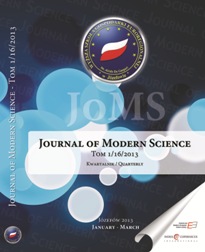Zastosowanie modelu osądzania refleksyjnego do oceny rozwoju intelektualnego dorosłych.
Applying the reflective judgement model for evaluation of adult intellectual development.
Author(s): Anna Perkowska-KlejmanSubject(s): Education, Psychology, Adult Education, Social development
Published by: Wydawnictwo Akademii Nauk Stosowanych WSGE im. A. De Gasperi w Józefowie
Keywords: reflective judgment; critical thinking; clinical judgment; problem solving; professional decision-making; adult development;
Summary/Abstract: The purpose of this article is to present The Reflective Judgment Model. This model describes the developmental progress that occurs between periods of adolescence and adulthood. The progress is observed in the ways that people understand processes of knowing and the certainty of knowledge claims and how they justify their beliefs. The Reflective Judgment model is composed of three distinct levels: “Pre-Reflective,” “Quasi-Reflective,” and “Reflective.” People at the lowest - “pre-reflective” - stages are convinced of the absolute correctness of knowledge. The “quasireflexive” stages are accompanied by the assumption that knowledge contains elements of uncertainty and is context sensitive. “Reflective” stages encompass the epistemological assumption that there is no single, fixed time understanding of the world. A standardized interview is used to measure the level of reflective thinking. The Reflective Judgment Inventory questionnaire consists of a number of cognitive statements, that have multiple solutions, followed up by additional questions. The results of the educational research show that the ability to assess reflectively increases with age.
Journal: Journal of Modern Science
- Issue Year: 22/2014
- Issue No: 3
- Page Range: 439-455
- Page Count: 17
- Language: Polish

